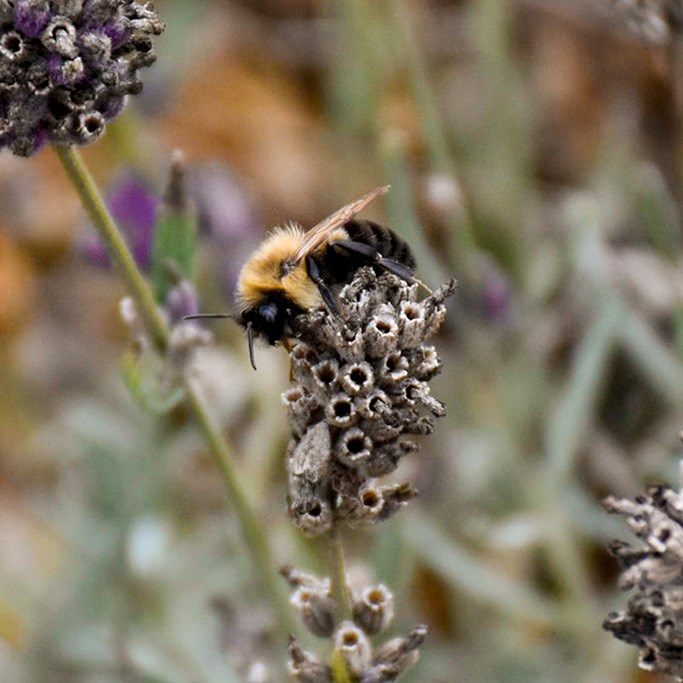A busy bee travels from flower to flower, providing life to the bounty of plants found here in Delta.
Although some plants are self pollinating, many require the help of pollinators, such as bees, to carry out this function.
Pollination is a regionally specific process, as different ecosystems host different species of plants and animals. Here in Delta, blueberry crops are dependent on commercial honey bees and native bees for pollination.
In the spring when blueberries are flowering, pollinators feed on the flowers’ nectar. A pollinator will collect pollen from the male part of a flower (the anther) and then transfer that pollen to the female part of another flower (the stigma). But once the flowers have been fertilized and develop into berries, pollinators are left without a food source.
By enhancing sections of farmland with habitat containing flowering plants, farmers can ensure the continued availability of foraging resources for pollinators. Gurprit Brar is a local grower who plants clover strips on his fields in order to attract pollinators and maintain a healthy ecosystem.
“It’s our duty to leave them flowers so that they have a food source in the off season … once we have those management practices that encourage native pollinators, they will start to work for us,” says Brar.
Supporting pollinators is critical to ensuring the future of food security. It is estimated that pollinators are responsible for sourcing one out of every three bites of food we consume.
Although effective, these management strategies can be costly for growers. This is why Delta Farmland & Wildlife Trust offers various stewardship programs that share with farmers the cost of enhancing farmland with natural habitat such as planting grass and floral strips. These types of habitat provide important sources of food for pollinators as well as an array of other benefits to agriculture and the environment.
Editor's Note: Nature Notes is a twice a month column written by the Delta Naturalists Society and their other community partners.



